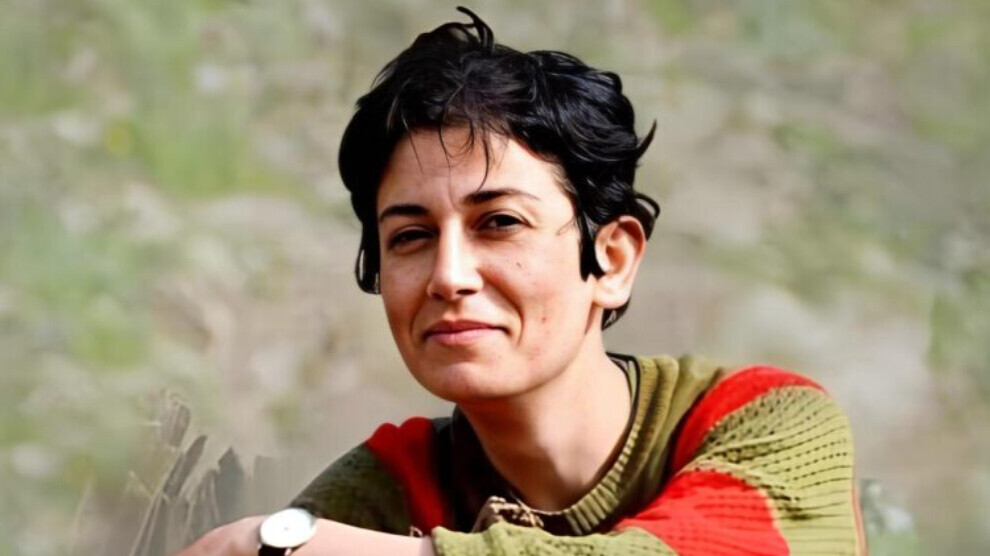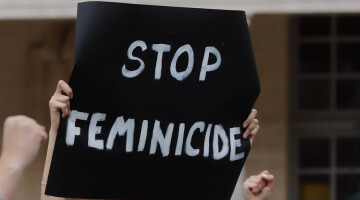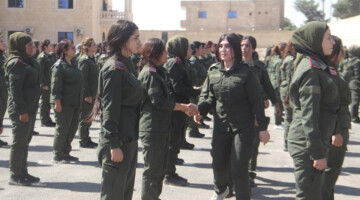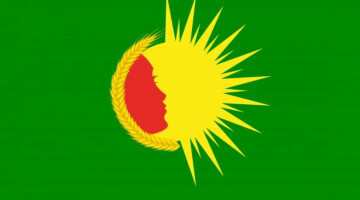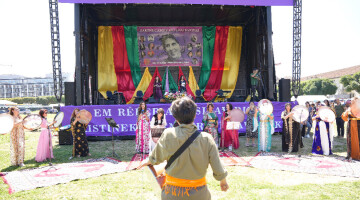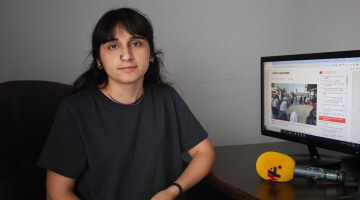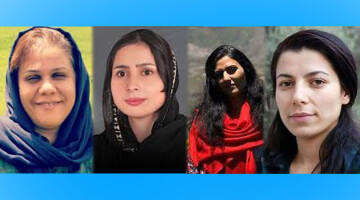Pakhshan Azizi is a social worker and also worked as a journalist. In August last year, she was arrested in Tehran by agents of the Ministry of Intelligence and was severely tortured both physically and psychologically for weeks. She is currently in the notorious Evin prison. In July, a court in Iran's capital sentenced Azizi to death by hanging for "armed rebellion against the system."
Azizi sent a letter from Evin Prison in Tehran on the occasion of the second anniversary of the death of Jina Mahsa Amini, a 22-year-old Kurdish Iranian woman, who was detained and tortured to death by the ‘morality’ police in Tehran on 16 September 2022. Jina Amini’s death sparked an unprecedented rebellion in Iran and Eastern Kurdistan. This rebellion was called ‘Jin, Jiyan, Azadî’ (Woman, Life, Freedom). Iranian forces killed hundreds of people and arrested thousands during the uprising. Many were executed. Human rights groups say the Iranian government uses the death penalty to suppress public outcry.
Azizi commemorated those who lost their lives in the uprising, promised to increase the struggle and said: “The philosophy of ‘Jin, Jiyan, Azadî’ is a philosophy of life, not death.”
Azizi pointed out the pioneering role of women in society and stated that the social role of men should be redefined. Emphasising that real happiness and freedom would be an illusion unless equality of men and women is achieved, she drew attention to the fact that sexism has become an instrument of power and a moral-political struggle against this sexism is essential.
Remarking that the 21st century will be the century of women, Pakhshan Azizi stated that the content of this revolution will be shaped by Jineolojî, the science of women developed by Kurdish People's Leader Abdullah Öcalan.
Azizi stated that reforming the existing systems would not be enough to ensure freedom and argued that this system must be radically changed.
Emphasising that the women's revolution is not a reform movement but a radical, theoretical and scientific action, Pakhshan Azizi stated that despite the chaos and war environment, the peoples' belief in freedom has not been shaken.
Pakhshan Azizi stated that when women develop a common mind and language, they will put forward strong resistance against the patriarchal mentality and central authority, and that radical and comprehensive changes will be possible. Pointing to ‘Jin, Jiyan, Azadî’ as the formula for this change, she noted that the self-defence shaped around this philosophy should also be improved.
Pakhshan Azizi argued that ignoring women is an ideological approach and a strong ideological struggle must be waged against it. She stated that women and society are targeted through sexism, scientism, religionism and nationalism and emphasised that the nature and identity of women cannot be fully understood unless these concepts are criticised. According to Azizi, real life in the philosophy of ‘Jin, Jiyan, Azadî’ can only be established through a strong criticism of these concepts.
Pakhshan Azizi concluded her letter as follows: “The philosophy of ‘Jin, Jiyan, Azadî’ is a philosophy of life, not death. It is a scientific revolution in which Jineolojî is brought into being. We must never allow this philosophy, which the people emrace and rally around, to be diverted. ‘Jin, Jiyan, Azadî’ is a way in which we must develop a society that forms the democratic family, preserves its culture and bears a revolutionary consciousness so that our martyrs of the revolution do not remain unavenged.”

